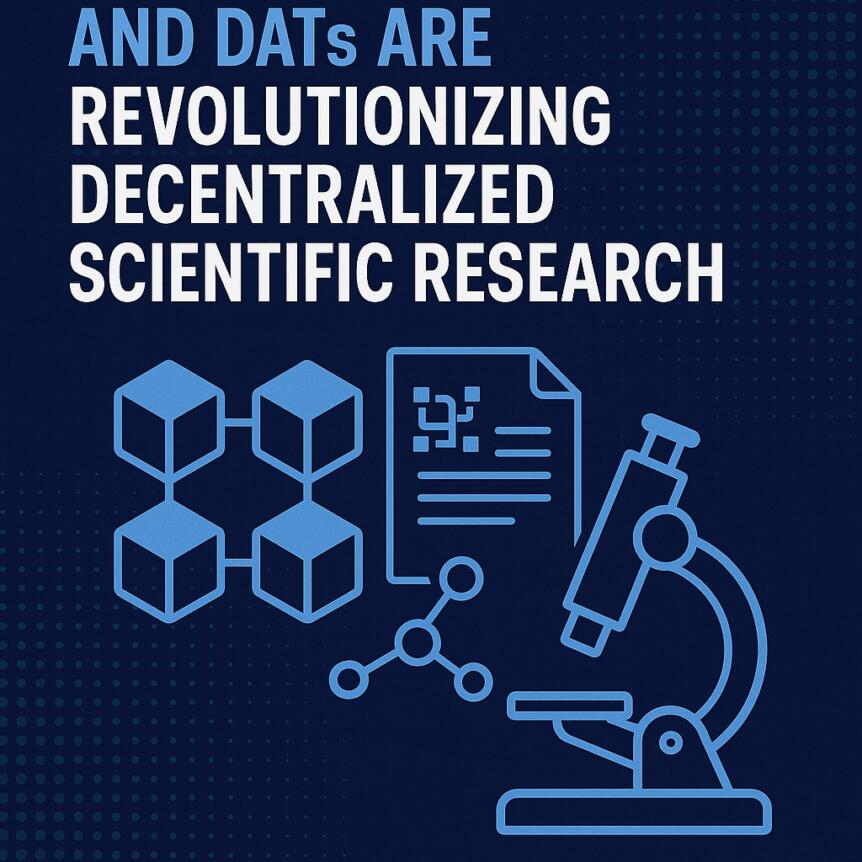- Biomedical companies are adopting blockchain-based funding models, including treasury strategies using cryptocurrencies like Toncoin, to support research initiatives.
- Portage Biotech is now a TON treasury, earning revenue through network staking and investments in Telegram ecosystem projects, with proceeds dedicated to cancer research.
- Innovative funding mechanisms, such as real-world asset tokenization and prediction markets, are emerging to decentralize and democratize scientific development.
- Bio Protocol secured $6.9 million from Animoca Brands, aiming to become an AI-native platform for biotech research and drug discovery financing.
- These efforts highlight a broader trend of integrating Web3 technologies into the scientific and healthcare sectors to accelerate breakthroughs and improve funding efficiency.
Biomedical and scientific organizations are increasingly adopting blockchain technology and crypto treasury strategies to transform how research is financed. These innovations aim to overcome longstanding inefficiencies and delays in scientific breakthroughs, especially in crucial areas like cancer research and drug development.
For example, Portage Biotech, a prominent biomedical firm, shifted its focus in September to become a treasury holder of Toncoin (TON). The company now earns revenue from staking the network and investing in projects within the Telegram ecosystem, including web-based games and mini-apps.
The company’s leadership, including AlphaTON CEO Brittany Kaiser, revealed that a portion of the earnings—both from the company’s operational activities and from the appreciation of TON—will be allocated specifically for cancer research funding. Kaiser emphasized that the company is exploring real-world asset tokenization as an alternative way of financing scientific ventures.
“We’re investigating different approaches—from tokenizing intellectual property and company equity to future profits of research—to decentralize and democratize scientific funding,” Kaiser explained.
Both Kaiser and Anthony Scaramucci, a strategic advisor to AlphaTON, pointed out that biomedical research, supported by operating businesses within the crypto space, sets AlphaTON apart from typical digital asset treasuries which often lack such operational assets. Scaramucci noted, “Most crypto treasuries eliminate the core business assets, but this model preserves valuable assets in the shell, creating new opportunities for innovation.”
Ideosphere aims to finance early-stage research through prediction markets
Another innovative approach is spearheaded by Ideosphere, a decentralized science startup that’s exploring funding early-stage scientific research through prediction markets. These platforms act as crowdsourced intelligence hubs, enabling speculative voting on research hypotheses.
“Prediction markets around early research hypotheses can foster innovative ideas and bring funding directly from interested stakeholders,” said Ideosphere co-founder Rei Jarram. “Researchers can share their hypotheses, and traders’ speculation helps to validate or challenge these ideas, with the resulting market activity financially benefiting the researchers.”
Bio Protocol secures multimillion-dollar investment from Animoca Brands
In September, Bio Protocol, a decentralized platform that combines AI, blockchain, and community participation for drug discovery, announced a $6.9 million funding round led by Animoca Brands and the Maelstrom fund. The platform aims to establish an AI-native marketplace for biotech research.
Arthur Hayes, founder of Maelstrom, expressed optimism about the platform’s potential to revolutionize scientific research. “Bio Protocol has the capacity to become a full-fledged AI-driven research market, fundamentally changing how biotech innovation is funded and executed,” he said.
This trend toward integrating blockchain, AI, and decentralized finance (DeFi) tools into scientific funding demonstrates a growing push to accelerate the development of lifesaving treatments and therapies. As the sector evolves, the combination of crypto-based strategies with medical research might unlock new pathways for innovation and funding efficiency.







